Les Amants du Pont-Neuf (1991): Lost & Found | perdidos y encontrados [ENG | ESP]
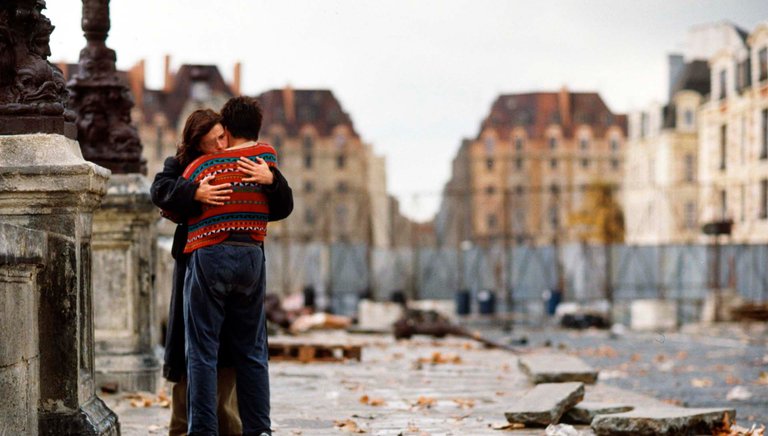
A couple of months ago, I experienced a very special moment: I was able to watch the live broadcast of the Cannes Film Festival's opening ceremony. Thanks to the French Cultural Institute in Santiago, for the first time in my life, I was able to witness the opening of one of the world's leading film festivals and watch the honorary Palme d'Or awarded to Robert De Niro and the presentation of the main competition jury, headed by one of the most renowned European actresses of all time: Juliette Binoche.
Hace un par de meses viví un momento muy especial: pude ver - en vivo - la transmisión de la ceremonia de apertura del Festival de Cannes. Gracias al Instituto de Cultura Francés en Santiago, por primera vez en mi vida, pude ver cómo inicia uno de los principales festivales de cine del mundo y estar atento a la pantalla cuando le entregaron la Palma de Oro honorífica a Robert de Niro y cuando fue presentado el jurado de la competición principal, el cual estuvo encabezado por una de las actrices europeas más reconocidas de todos los tiempos: Juliette Binoche.
Before introducing the jury president, the festival production put together a collage of some notable scenes from the actress's filmography, where I recognized fragments of The Unbearable Lightness of Being, Krzysztof Kieślowski's Color Trilogy, Certified Copy, The English Patient, Wuthering Heights, Clouds of Sils Maria, but where I also saw scenes from iconic Binoche films that I had yet to see. One of them, perhaps the most famous of her filmography, is Les Amants du Pont-Neuf by Leos Carax, a film that was on my to-watch list for a long time until I decided to watch it this week. The script, written by the director himself, revolves around the Pont Neuf, which is actually the oldest bridge in Paris (Pont Neuf means New Bridge), which is currently closed due to repairs and renovations that will take approximately two years to complete. Two homeless people live there, Hans and young Alex, until one night someone else comes to sleep there: a young woman named Michèle.
Antes de presentar a la presidenta del jurado, la producción del festival hizo un collage con algunas escenas destacadas de la filmografía de la actriz en donde pude reconocer fragmentos de The Unbearable Lightness of Being, la trilogía del color de Krzysztof Kieślowski, Certified Copy, The English Patient, Wuthering Heights, Clouds of Sils Maria, pero en donde también pude ver escenas de emblemáticas películas de Binoche que me faltaba ver. Una de ellas, acaso la más famosa de su filmografía es Les amants du Pont-Neuf de Leos Carax, cinta que estuvo en mi lista de pendientes durante mucho tiempo hasta que me dispuse a verla esta semana. El guion, escrito por el mismo director, gira en torno al Pont Neuf, que en realidad es el más antiguo de París (Pont Neuf significa Puente Nuevo), el cual se encuentra cerrado debido a trabajos de reparación y remodelación que tardarán aproximadamente un par de años en completarse. Allí viven dos vagabundos, Hans y el joven Alex, hasta que uno noche llega alguien más a dormir allí: se trata de una mujer joven llamada Michèle.
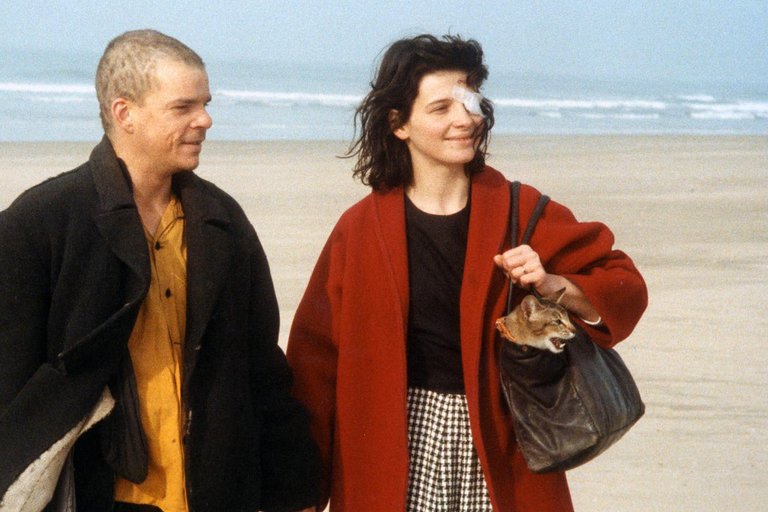
From the beginning of the film, the same question arises for both of them: how did they get there? Why, due to the misfortunes of their fate, did these two young people end up spending their nights outdoors? We learn little about Alex, but we understand that he used to perform in a circus and currently has two serious problems: one with alcohol and the other with insomnia. We learn a little more about Michèle, but to avoid spoiling the surprises, I'll just say that she paints. That is, she painted before she began living on the streets, and even in these deplorable conditions, she continues to do so.
Desde el inicio de la película nos surge la misma pregunta para ambos: ¿cómo llegaron allí? ¿por qué infortunios de sus destinos estos dos jóvenes acabaron pasando sus noches a la intemperie? De Alex se nos dice poco, pero entendemos que solía actuar en un circo y que actualmente tiene dos problemas serios: uno con el alcohol y otro con el insomnio. En cambio, de Michèle se nos dice un poco más, pero para no arruinar las sorpresas sólo diré que pinta. Es decir, pintaba antes de comenzar a vivir en la calle y aún en esas deplorables condiciones continúa haciéndolo.
Les Amants du Pont-Neuf is a love story, and in some ways, it conveys the idea that love can blossom even in the most adverse circumstances. Logically, those same circumstances determine the type of love that can flourish in that case. For the characters in the film—broken, wounded, lost—love is something that sometimes resembles tenderness and other times selfishness; sometimes it's a love that cries out in the arms of the beloved, exposing the vulnerability of an abandoned heart, and other times it's the violence of pride, fear, and jealousy that sets everything ablaze. This intense, dramatic, and chaotic dynamic keeps the viewer in suspense, unsure of what to expect because they never really get to know its protagonists. I confess that at times I found the relationship between Alex and Michèle quite intense, but considering they are two alcoholic, broken individuals on the verge of madness, what else could one expect? I also liked that the story was set in Paris, but not on the Champs-Élysées in the shadow of the Eiffel Tower, but on a bridge under repair, under the cover of night, far from the glamour of the French capital: a ruined setting for fragmented characters. Using that idea as a backdrop to tell a love story in one of the most romantic cities in the world seemed interesting to me.
Les Amants du Pont-Neuf es una historia de amor y de alguna manera viene a exponer la idea de que el amor puede surgir aún en las circunstancias más adversas. Lógicamente esas mismas circunstancias condicionan el tipo de amor que puede florecer en ese caso. Para los personajes de la película - rotos, heridos, perdidos - el amor es una cosa que a veces se parece a la ternura y otras veces al egoísmo; a veces es un amor que llora entre los brazos del amado exponiendo la vulnerabilidad de un corazón abandonado, y otras veces es la violencia del orgullo, el miedo y los celos incendiando todo alrededor. Esa dinámica intensa, dramática y caótica, mantiene en tensión al espectador que no sabe exactamente qué esperar porque nunca llega a conocer realmente a sus protagonistas. Confieso que por momentos me pareció bastante intensa la relación entre Alex y Michèle, pero teniendo en cuenta que son dos seres alcoholizados, quebrados, al borde de la locura, ¿qué otra cosa podría esperarse? Me gustó también que la historia se desarrollase en París, pero no en los Campos Elíseos y a la sombra de la torre Eiffel, sino en un puente en reparaciones, al amparo de la noche, lejos del glamour de la capital francesa: un escenario destruido para unos personajes fragmentados. Haber tomado esa idea como telón de fondo para contar una historia de amor en una de las ciudades más románticas del mundo me pareció interesante.
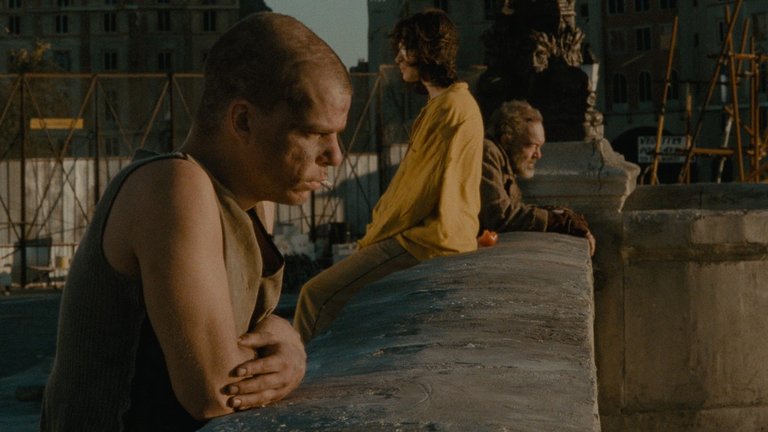
Not to mention the performances by Juliette Binoche and Denis Lavant. They were incredible throughout, especially Binoche, who garnered awards and nominations for this role in which she displayed her talent from start to finish. I'd seen her more innocent, more experienced, more restrained, tender, and strong in other roles, but I'd never seen her like this, on the verge of mental collapse, harboring a hurricane of pain and anxiety in her chest. Without a doubt, she's one of the best actresses of all time.
Ni qué decir de las actuaciones de Juliette Binoche y Denis Lavant. Estuvieron increíbles en todo momento, en especial Binoche, que cosechó premios y nominaciones por este papel en el que despliega su talento de inicio a fin. La había visto más inocente, más experimentada, más comedida, tierna y fuerte en otros papeles, pero nunca la había visto así, al borde del colapso mental y albergando un huracán de dolor y ansiedad en medio del pecho. Sin duda, es una de las mejores actrices de siempre.
I have some friends who don't like French cinema because they think they are weird films, and of course, if we think of titles like Jeux d'enfants or this Les Amants du Pont-Neuf, I can understand their doubts when visiting other stories from this country. However, I think they are films that force you to think, that question you, make you uncomfortable and shake you up; and that's the least we can ask of cinema (and art in general). So, is this the most romantic movie I've ever seen? No, is the love story between Alex and Michèle the center of the plot? From my point of view, no; is it a story that makes you sigh with illusion and think about the person you love? Neither; however, would I recommend watching it? Yes, because it has a different approach to the concept of love and although some will call this love while others will say it is anything but that, the truth is that the simple fact of encouraging debate is enough to be grateful for the existence of this story. Lastly, I wanted to clarify that for the title of this post I took a line from a song by The Midnights that came to my mind after seeing the movie. The line goes “we're never as lost or as found as we think we are” and I think that simple line is also food for thought. How many of you have seen the movie? What did you think of it? I'll read you in the comments.
Tengo algunos amigos a quienes no les gusta el cine francés porque piensan que son películas raras, y claro, si pensamos en títulos como Jeux d'enfants o esta Les Amants du Pont-Neuf, puedo entender sus dudas a la hora de visitar otras historias de este país. Sin embargo, creo que son películas que te obligan a pensar, que te interpelan, te incomodan y te sacuden; y eso es lo menos que podemos pedirle al cine (y al arte en general). Así que, ¿es esta la película más romántica que he visto? No, ¿la historia de amor entre Alex y Michèle es el centro de la trama? Desde mi punto de vista, no; ¿es una historia que te hace suspirar ilusionado y pensar en la persona que amas? Tampoco; sin embargo, ¿recomendaría verla? Sí, porque tiene una aproximación diferente al concepto del amor y aunque algunos llamarán a esto amor mientras que otros dirán que es cualquier cosa menos eso, lo cierto es que el simple hecho de propiciar el debate, es suficiente para agradecer la existencia de esta historia. Por último, quería aclarar que para el título de este post tomé un verso de una canción de The Midnights que llegó a mi mente luego de ver la película. La frase dice "Nunca estamos tan perdidos ni tan encontrados como creemos estar" ("we're never as lost or as found as we think we are") y creo que esa simple línea también da para pensar un rato ¿cuántos de ustedes han visto la película? ¿qué les pareció? Los leo en los comentarios.
Reviewed by | Reseñado por @cristiancaicedo
Other posts that may interest you | Otros posts que pueden interesarte:
 |
|---|
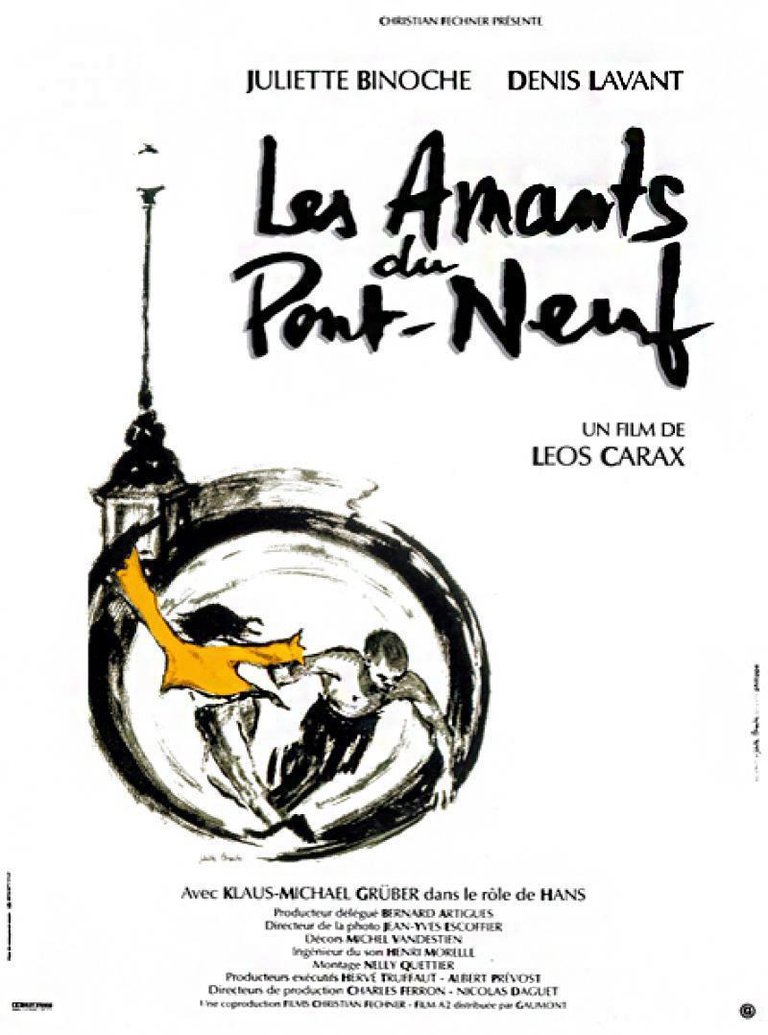
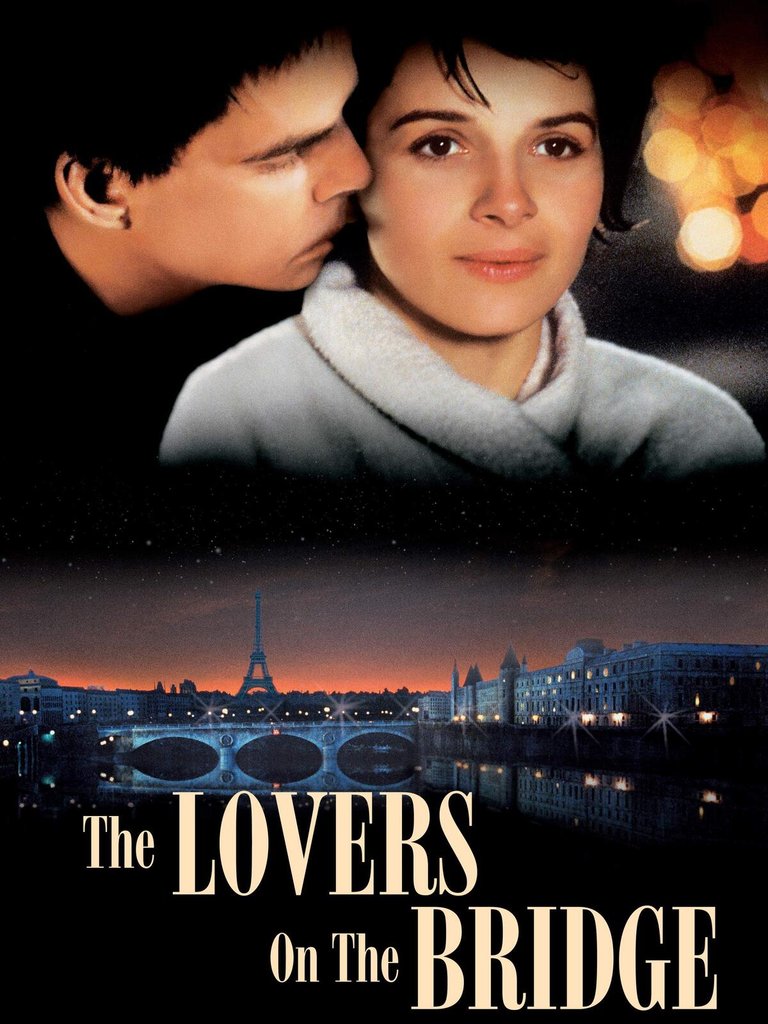
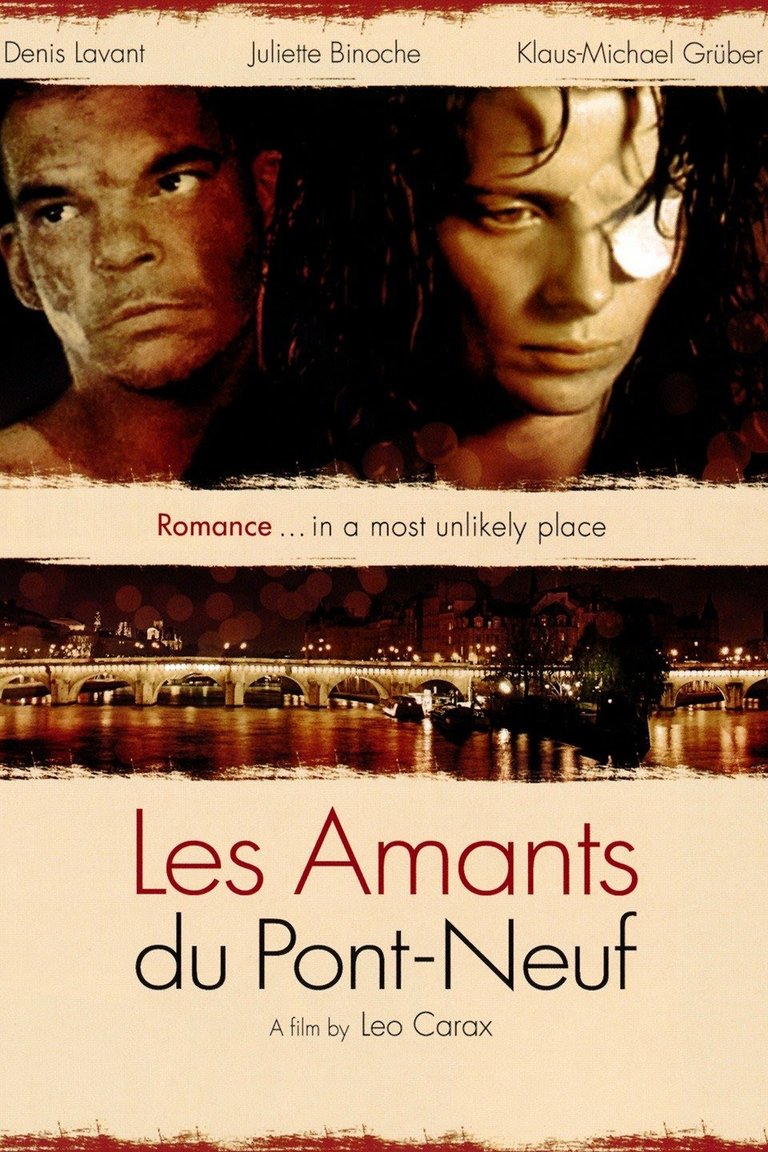
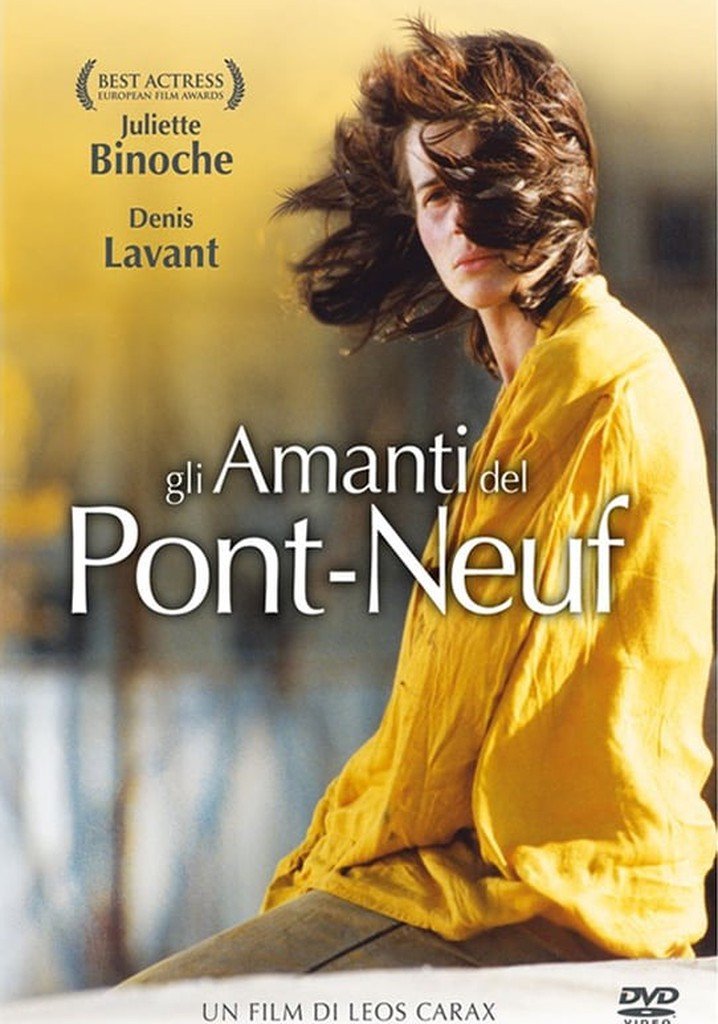
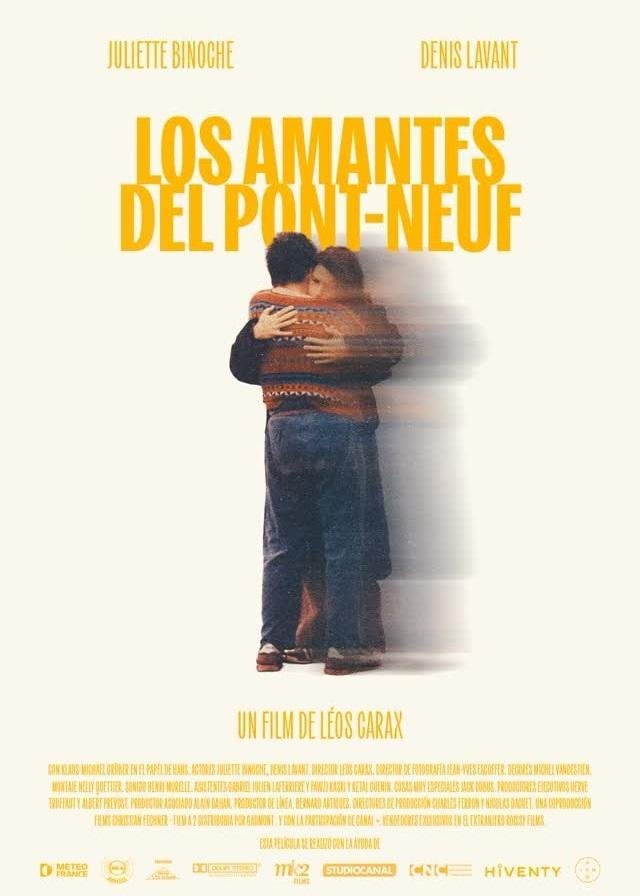
El cine francés me parece interesante. Se nota que conectarte muy bien con esta película. Gracias como siempre por tu gran reseña. Saludos.
Gracias a ti por pasar y leerme. Saludos.
Gracias por traernos a esa amada actriz, Juliette Binoche, en un filme poco conocido, pero que, con tu reseña, logras convencernos para verlo. Saludos, @cristiancaicedo.
Muchas gracias por el apoyo de siempre. Saludos.